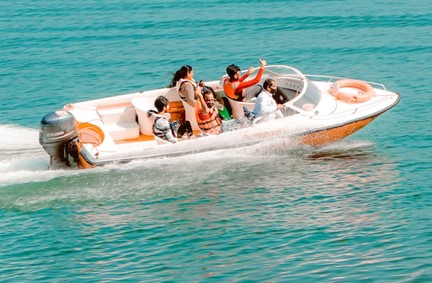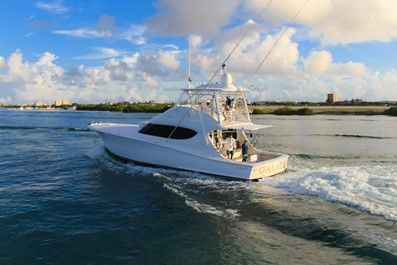Dave Hebeda of New York is an avid boater and outdoorsman. In the following article, David Hebeda discusses how to ensure everyone has a safe and enjoyable time on the water with a breakdown of some general boating safety tips.
Boating is a beloved recreational activity enjoyed by millions of people around the world, whether on lakes, rivers, or oceans.
David Hebeda says that like any outdoor activity, it can also be hazardous if proper safety precautions aren’t taken; in 2019 alone, there were 4,168 boating accidents reported to the US Coast Guard, with 613 fatalities and 2,559 injuries reported.
Before Leaving
Before embarking on a boating trip, it is essential to take some important precautions for safety and an enjoyable experience. David Hebeda provides some tips to keep in mind before setting sail:
- Always Check the Weather Forecast Before Going Out on the Water: Sudden changes in conditions can create dangerous situations, so it’s best to prepare accordingly.
- Gather Necessary Equipment: Ensure all necessary safety gear is on board, such as life jackets, flares, a fire extinguisher, a first aid kit, and navigation lights. Furthermore, check that the vessel is in proper working condition with all required safety items per regulations.
- Familiarization with the vessel: Before embarking on the voyage, become familiar with the vessel, its controls, and safety features. If uneasy, seek training or assistance from a certified instructor or operator for additional instruction or navigation.
- Create a Float Plan: Inform someone on land of the intended route and estimated arrival time and provide updates if those plans change. This information can be crucial in case of an emergency.
While on the Water
David Hebeda says that once out on the water, there are a few things to remember for a safe experience:
- Wear Life Jackets: According to the US Coast Guard, 76% of boating fatalities in 2019 were due to drowning, and 84% of these victims weren’t wearing a life jacket. Wearing a life jacket can significantly boost the chances of surviving an accident or emergency.
- Adhere to Navigation Rules: Boats must abide by the same navigation regulations as cars on the road, so be aware of and adhere to them in order to avoid colliding with other vessels.
- Stay Alert and Aware: Dave Hebeda of New York says that it’s important to be mindful of surroundings and keep an eye out for other boats, swimmers, and obstacles. Put away distractions such as cell phones or alcohol and be present in the moment.
- Avoid Alcohol and Drugs: Boating while under the influence is illegal and can be hazardous. According to the US Coast Guard, alcohol use was the leading contributing factor in fatal boating accidents in 2019, accounting for 23% of all fatalities.
Emergencies
Dave Hebeda of New York says that even with all precautions taken, emergencies can still happen while out on the water.
To be prepared for anything that may arise, it’s essential to have a plan in place and know what steps to take if an emergency arises.
Here are some helpful hints:
- Be Prepared for Emergencies: Have a plan in place in case of emergency such as fire, flooding or engine failure. Moreover, understand how to operate emergency equipment like distress signals, flares and radios.
- Understand how to Use Distress Signals: When assistance is needed, learn how to utilize distress signals such as flares or whistles to signal for help.
- Have Safety Equipment on Board: In case of injury, have an accessible first aid kit and know how to use it. Have an VHF marine radio on board to contact emergency services in case of an emergency.
Tips for Navigating Specific Waterways
Dave Hebeda of New York says that different waterways necessitate different precautions and considerations.
Here are some tips for specific types of waterways:
- Lakes: Be aware of surroundings and avoid shallow areas when boating or swimming. Be alert for other vessels in the water as well as swimmers. Some restrictions or regulations that may exist.
- Rivers: Rivers can have strong currents and unpredictable conditions, so be extra cautious and aware. Learn how to navigate through rapids and around obstacles like rocks or sandbars, and be alert for any obstructions such as rocks or sandbars that might hinder progress.
- Ocean: The ocean can be unpredictable and rapidly changing conditions, so always check weather and tide conditions before venturing out. Make sure the boat is seaworthy and capable of handling rough sea conditions; consider taking a boating safety course specifically tailored to ocean boating.
- Inland Waterways: Be aware of any regulations or restrictions before entering an inland waterway such as canals and rivers. Be mindful of the environment and avoid shallow areas or obstructions to ensure a smooth journey.
Adhere to these general boating safety tips to enjoy a secure and enjoyable experience on the water. Always be prepared, stay alert, and abide by regulations for safe boating. Taking time to plan ahead can prevent accidents and save lives in case of emergency.










